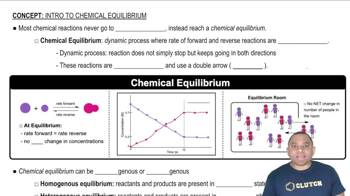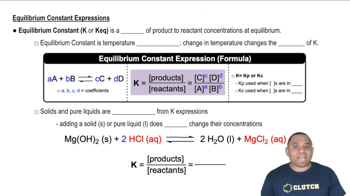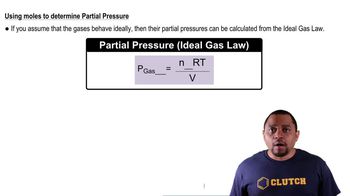Textbook Question
The equilibrium 2 NO(𝑔) + Cl2(𝑔) ⇌ 2 NOCl(𝑔) is established at 500.0 K. An equilibrium mixture of the three gases has partial pressures of 0.095 atm, 0.171 atm, and 0.28 atm for NO, Cl2, and NOCl, respectively. (b) If the vessel has a volume of 5.00 L, calculate Kc at this temperature.





